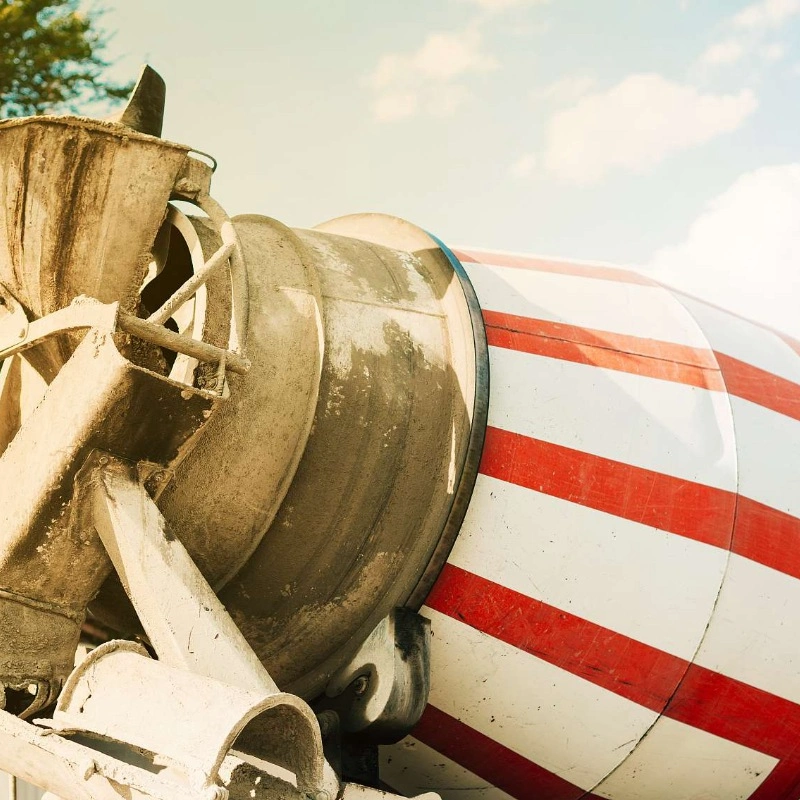
Special steel plays a vital role in the realm of high-performance machinery, epitomizing the advancements in material science that bolster efficiency and durability. Unlike traditional steel, special steel encompasses a unique combination of chemical compositions and heat treatments tailored for specific applications. The special steel provided by Promispecial can meet these customized characteristics, making it indispensable in industries that rely on high elasticity materials that can withstand extreme conditions.This article delves into the essential qualities of special steel and its significant contributions to high-performance machinery.
Understanding Special Steel
Special steel refers to specific steel alloys that are engineered with enhanced properties to fulfill specialized needs in various applications. These steels can include elements such as nickel, molybdenum, and vanadium, which modify the base iron structure to impart desirable characteristics not found in conventional steel. Understanding these unique formulations is crucial, as they offer improved performance metrics that contribute to the longevity and reliability of machinery.
The manufacturing processes of special steel involve advanced techniques like controlled rolling and quenching, which further enhance its physical and mechanical properties. By precisely controlling the heating and cooling processes, manufacturers can optimize factors such as tensile strength and yield point, leading to materials that perform exceptionally well under high stress and extreme conditions. This scientific approach to steel creation is a testament to the evolving nature of materials engineering and reflects the ongoing pursuit of excellence in high-performance machinery.
Unpacking the Science of Steel Performance
The performance attributes of special steel can be attributed to its refined microstructure and heterogeneous properties. This microstructural analysis involves examining the grain sizes, phase distributions, and alloying element distributions, which allow engineers to predict performance outcomes accurately. Moreover, advancements in technology have facilitated better characterization of these microstructural components, enabling the creation of steel that meets stringent performance benchmarks.
In applications where precision and reliability are paramount, the predictable behaviors of special steel under stress allow for more efficient design and production processes. Engineers can tailor these materials to specific operational requirements, whether it be resistance to thermal fatigue, wear and tear, or deformation under load. By leveraging the scientific understanding of steel performance, industries can ensure that their machinery operates without inadvertent failures, enhancing productivity and safety.
The Role of Special Steel in High-Performance Machinery
High-performance machinery demands materials that can withstand rigorous operational demands. Special steel meets these demands by exhibiting several key characteristics that significantly enhance machinery performance.
Exceptional Strength and Durability
One of the primary attributes of special steel is its exceptional strength. It surpasses conventional steel in its ability to resist deformation, maintain structural integrity, and handle extreme loads without succumbing to wear. This strength allows machinery components made from special steel to endure stresses that would ordinarily lead to fatigue in standard materials.
Durability, closely tied to strength, ensures that components demonstrate a longer lifespan, reducing downtime and the necessity for replacement. For industries such as aerospace, automotive, and manufacturing, where operational efficiency is closely linked to the reliability of machinery, investing in special steel translates into tangible economic benefits.
Enhanced Corrosion Resistance
Corrosion can significantly undermine the performance and lifespan of machinery, particularly in industries subjected to harsh environments. Special steel is engineered to exhibit enhanced corrosion resistance, making it suitable for applications where exposure to moisture, chemicals, and other corrosive elements is common.
By incorporating alloying elements that inherently resist oxidation and environmental degradation, special steel provides a protective layer against corrosion. This characteristic is especially critical in marine, chemical processing, and other specialized applications where machinery may be exposed to corrosive conditions. The result is not only a material that performs better but also one that requires less maintenance and less frequent part replacement, yielding further operational savings for businesses.
Improved Toughness and Ductility
The physical properties of toughness and ductility are essential for materials that must absorb impact and deform without fracturing. Special steel is designed to optimize these properties, enabling it to endure shocks and vibrations typical in various industrial applications.
Improved toughness allows special steel components to withstand sudden loads without failure, offering a safety net in critical applications. At the same time, ductility ensures that materials can be molded and shaped without cracking, which is crucial during manufacturing processes and component assembly. These properties are not merely beneficial; they are paramount for industries where machinery operates under multifaceted stresses, such as mining, robotics, and advanced manufacturing.
In conclusion, special steel is undeniably crucial for high-performance machinery due to its enhanced properties that cater to the demanding requirements of various industries. Its exceptional strength, durability, corrosion resistance, toughness, and ductility make it the material of choice for engineers and manufacturers. Promispecial will continue to innovate in special steel technology, the potential applications and benefits of this remarkable material will undoubtedly expand, further solidifying its role in the future of high-performance machinery.
Specialized Applications of Special Steel
Advanced Equipment Manufacturing
Special steel is pivotal in advanced equipment manufacturing, offering tailored solutions for machinery that require specific performance characteristics. Engineers and designers increasingly rely on special steel to innovate and develop advanced machinery that pushes technological boundaries. For instance, precision manufacturing for aerospace components necessitates materials that not only meet stringent weight requirements but also offer exceptional strength-to-weight ratios. The need for parts that can withstand high pressures and extreme temperatures places an emphasis on the unique properties of special steel, making it indispensable in this sector.
Moreover, the integration of special steel in advanced equipment goes beyond static components, extending into dynamic parts like gears and bearings that face constant movement and stress. The consistent performance metrics provided by special steel ensure that these components can function effectively amid rigorous operating conditions, ultimately leading to enhanced system performance.
High-End Operator Machine Components
In the domain of high-end operator machine components, special steel plays a substantial role in enhancing operational efficiency and reliability. The use of special steel can be seen in components such as hydraulic systems, robotics, and precision tools, where performance and durability are non-negotiable. Components made from special steel are designed to sustain heavy loads, resist fatigue, and endure thermal variations, which are typical challenges faced by operator machines. This ensures that machines function without unexpected downtimes and maintain a high level of operational efficacy.
Furthermore, the customization of special steel allows for the creation of parts that address specific operational challenges. For example, the incorporation of special alloying elements can enhance wear resistance on components that experience high friction. This precise manipulation of material properties is critical in high-precision areas such as medical devices and fintech machines, where operational reliability and safety are paramount.
The Process of Developing Special Steel
Research and Development in Material Science
The journey of creating effective special steel begins with extensive research and development (R&D) in material science. Researchers collaborate closely with industries to identify specific needs and problems that existing materials do not address effectively. This collaborative approach fosters innovative developments in steel formulations, allowing engineers to experiment with various alloy compositions and heat treatment processes to achieve the desired mechanical properties. Rigorous testing during R&D enables the evaluation of how different compositions interact under various stress scenarios, yielding critical data that informs the next stages of development.
In addition to formulaic advancements, the development process also hinges on incorporating cutting-edge technologies such as computer modeling and simulation. These technologies provide insights into microstructural behavior, aiding in predicting performance outcomes before physical prototypes are produced. Material scientists can analyze the arrangement of atoms and the behavior of phases under operating conditions, refining their formulations accordingly. As a result, the intersection of scientific insight and practical application leads to advancements that bridge the gap between theory and real-world application for special steel.
Transition from Research to Practical Application
The transition from research to practical application is a pivotal phase in the development of special steel, requiring not only conceptual innovations but also effective manufacturing processes and quality control measures. Once R&D teams finalize a special steel formulation, the focus shifts to scaling up production while maintaining the material’s integrity and performance specifications. This involves implementing stringent quality control protocols during manufacturing to ensure each batch of steel retains the important characteristics established in the laboratory. Such protocols may include standardized testing for tensile strength, ductility, and corrosion resistance, ensuring that the practical application matches the research findings.
Additionally, collaboration with suppliers and manufacturers is essential during this phase to ensure that the unique requirements of high-performance machinery are met effectively. This synergy between material producers and equipment manufacturers enables the optimized use of special steel in real-world scenarios, effectively translating research insights into materials that provide exceptional performance across numerous applications.
Advantages of Using Special Steel
Performance Efficiency in Machinery Operations
Special steel significantly enhances performance efficiency in machinery operations by providing materials that are specially designed for heavy-duty applications. The unique properties of special steel, such as its high strength-to-weight ratio and exceptional durability, enable machinery to operate at optimal levels under varied stress conditions. This translates into improved effectiveness in tasks that require high precision and reliability, contributing to a smoother production process across industries. To illustrate, in sectors such as aerospace and automotive, the application of advanced special steel alloys facilitates the production of components that can endure high-speed operations while maintaining performance integrity.
Furthermore, the ability of special steel to withstand extreme environmental conditions ensures that machinery remains operational in challenging settings. This robustness reduces the likelihood of mechanical failures or breakdowns, thereby ensuring continuous operations and minimizing unexpected downtime. The reliability of special steel in these contexts not only enhances the operational efficiency of machinery but also results in a solid return on investment for companies that emphasize minimizing disruptions in their production flows.
Economic Benefits and Cost-Efficiency
Utilizing special steel in machinery manufacturing can lead to significant economic benefits and cost-efficiency for various industries. Although the initial investment in special steel may be higher than that for conventional materials, the enhanced durability and reduced need for maintenance result in long-term savings. With the extended lifespan of machinery parts made from special steel, companies can avoid frequent replacements and maintenance costs associated with inferior materials, ultimately enhancing profitability.
Additionally, machinery equipped with special steel components often operates more efficiently, translating to lower energy consumption. This is especially pertinent in large-scale industries where operational costs are closely monitored. By minimizing downtime and optimizing energy usage, businesses can allocate resources more effectively, leading to improved operational sustainability. The expertise of Promispecial in producing special steel tailored to specific applications further supports this economic advantage, providing clients with high-performance steel solutions, like mold steel and spring steel that align with their financial and operational objectives.
Future Innovations in Special Steel
Emerging Technologies and New Compositions
The future of special steel is promising, with ongoing research and development paving the way for innovative steel compositions that will further elevate the capabilities of high-performance machinery. Advances in metallurgy, particularly in the realm of nanostructured materials and smart alloys, are expected to yield special steel variants that can adapt to extreme conditions automatically. By incorporating materials that respond dynamically to changes in their environment, such steels can enhance overall machine performance while ensuring safety and reliability.
Moreover, the integration of advanced manufacturing techniques, such as additive manufacturing, presents an exciting prospect for creating tailor-made special steel components. This technique allows for the production of complex geometries that were previously difficult to achieve, enabling the design of components optimized for specific operational requirements. We can anticipate a new wave of high-performance machinery that embodies the latest innovations in special steel technology.
Potential Impact on High-Performance Machinery
The innovations in special steel will significantly impact high-performance machinery, influencing design and functionality across various applications. As new alloy compositions are developed, machinery can become lighter, stronger, and more resistant to wear and corrosion, leading to more efficient and reliable operational processes. For instance, industries relying on heavy machinery, such as mining and construction, will benefit from lighter components that maintain structural integrity under heavy loads, thereby improving fuel efficiency and reducing operational risks.
Furthermore, the application of smart alloys and enhanced special steels could revolutionize maintenance practices within industrial settings. Predictive maintenance enabled by these advanced materials could reduce downtime and extend the life of machinery by informing operators of potential issues before they become significant problems. Promispecial will continue to embrace technological advancements and inject the important role of special steel into the new era of high-performance machinery.























